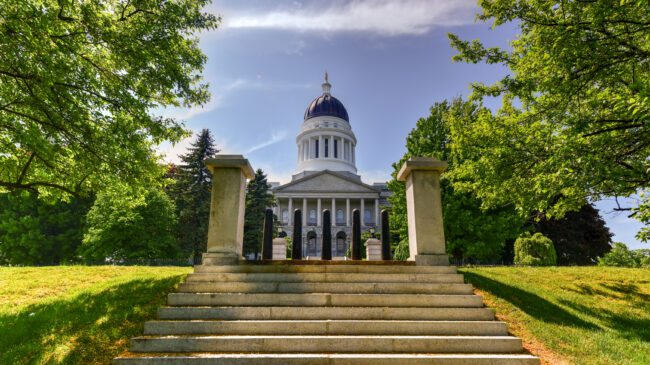No. 21-388
In the Supreme Court of the United States
JOHN K. MACIVER INSTITUTE FOR PUBLIC POLICY, INC. AND WILLIAM OSMULSKI, Petitioners,
v.
TONY EVERS, IN HIS OFFICIAL CAPACITY AS GOVERNOR OF THE STATE OF WISCONSIN, Respondent.
On Petition for a Writ Of Certiorari to the United States Court of Appeals for the Seventh Circuit
Brief of Goldwater Institute, Reason Foundation, and Maine Policy Institute as Amici Curiae Supporting Petitioners
Introduction and Summary of Argument
Respondent, Wisconsin Governor Tony Evers, excluded journalists employed by Petitioner John K. MacIver Institute for Public Policy, Inc. (“MacIver”) from his press briefings, specifically because they were affiliated with MacIver, a Wisconsin think tank that engages in public-policy advocacy.
That is content- and identity-based censorship. Cf. Sorrell v. IMS Health Inc., 564 U.S. 552, 567 (2011) (speech burdens “based on the content of speech [or] the identity of the speaker” are subject to strict scrutiny). It is also unjustifiable as a matter of free speech doctrine. Journalists employed by think tanks and other nonprofit organizations play an important role in the evolving news marketplace. As the legacy media’s coverage of state government has declined, nonprofit groups have stepped in to fill the void. At the national level, journalism projects sponsored by think tanks cover stories that the traditional media might not. And for a long time, magazines published by non-profit organizations have engaged in reputable journalism—even if their sponsoring organizations have distinctive, deliberate points of view.
To defend his exclusion of MacIver’s journalists from his press conferences, Governor Evers has cited supposedly neutral criteria that might appear designed to ensure that journalists who are admitted are objective and credible. But that, too, is antithetical to the First Amendment, under which the people, not the government, have the right to decide who to deem objective, credible, and worth listening to. The Constitution’s guarantee of freedom of the press does not assume that the press will be “objective,” and to allow the government power to draw legal lines around the press based on the government’s determination of “objectivity” is unworkable in principle. Besides, many Americans question the objectivity and credibility of today’s corporate media, and a majority find it not credible. So there is little basis to deem journalists employed by organizations like MacIver to be uniquely non-objective and not credible—and, in any event, there can be no justification for giving them less First Amendment protection.
Full Amicus Brief: John K. Maciver Institute For Public Policy v. Tony Evers
